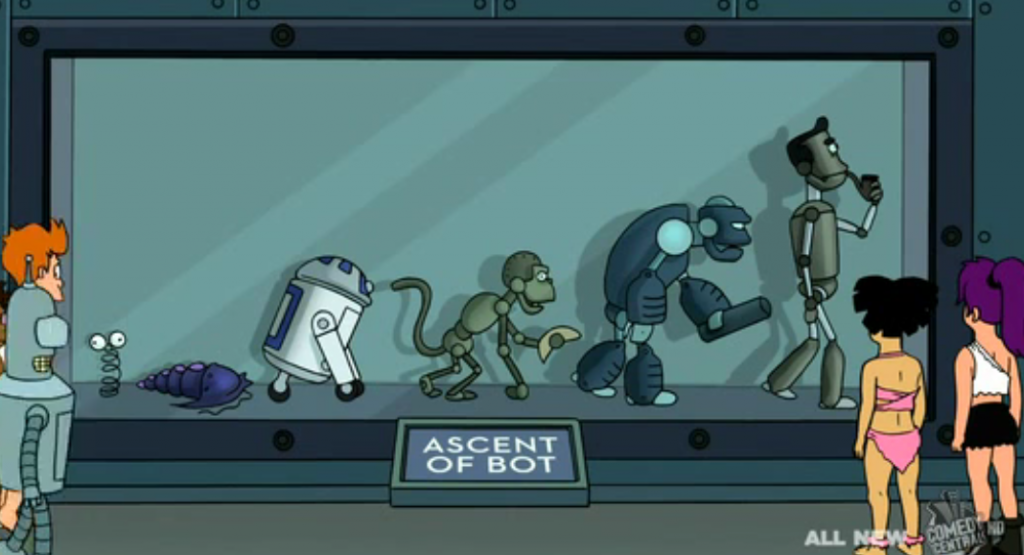Hannah recently directed me towards a new language evolution blog: Musings of a Palaeolinguist. From my reading of the blog, the general flavour seems to be focused on gradualist and abruptist accounts of language evolution. Here is a section from one of her posts, Evolution of Language and the evolution of syntax: Same debate, same solution?, which also touches on the protolanguage concept:
In my thesis, I went through a literature review of gradual and abruptist arguments for language evolution, and posited an intermediate stage of syntactic complexity where a language might have only one level of embedding in its grammar. It’s a shaky and underdeveloped example of an intermediate stage of language, and requires a lot of exploration; but my reason for positing it in the first place is that I think we need to think of the evolution of syntax the way many researchers are seeing the evolution of language as a whole, not as a monolithic thing that evolved in one fell swoop as a consequence of a genetic mutation, but as a series of steps in increasing complexity.
Derek Bickerton, one of my favourite authors of evolutionary linguistics material, has written a number of excellent books and papers on the subject. But he also argues that language likely experienced a jump from a syntax-less protolanguage to a fully modern version of complex syntax seen in languages today. To me that seems unintuitive. Children learn syntax in steps, and non-human species seem to only be able to grasp simple syntax. Does this not suggest that it’s possible to have a stable stage of intermediate syntax?
I’ve generally avoided writing about these early stages of language, largely because I had little useful to say on the topic, but I’ve now got some semi-developed thoughts that I’ll share in another post. In regards to the above quote, I do agree with the author’s assertion of there being an intermediate stage, rather than Bickerton’s proposed jump. In fact, we see languages today (polysynthetic) where there are limitations on the level of embedding, with one example being Bininj Gun-wok. We can also stretch the discussion to look at recursion in languages, as Evans and Levinson (2009) demonstrate:
In discussions of the infinitude of language, it is normally assumed that once the possibility of embedding to one level has been demonstrated, iterated recursion can then go on to generate an infinite number of levels, subject only to memory limitations. And it was arguments from the need to generate an indefinite number of embeddings that were crucial in demonstrating the inadequacy of finite state grammars. But, as Kayardild shows, the step from one-level recursion to unbounded recursion cannot be assumed, and once recursion is quarantined to one level of nesting it is always possible to use a more limited type of grammar, such as finite state grammar, to generate it.



